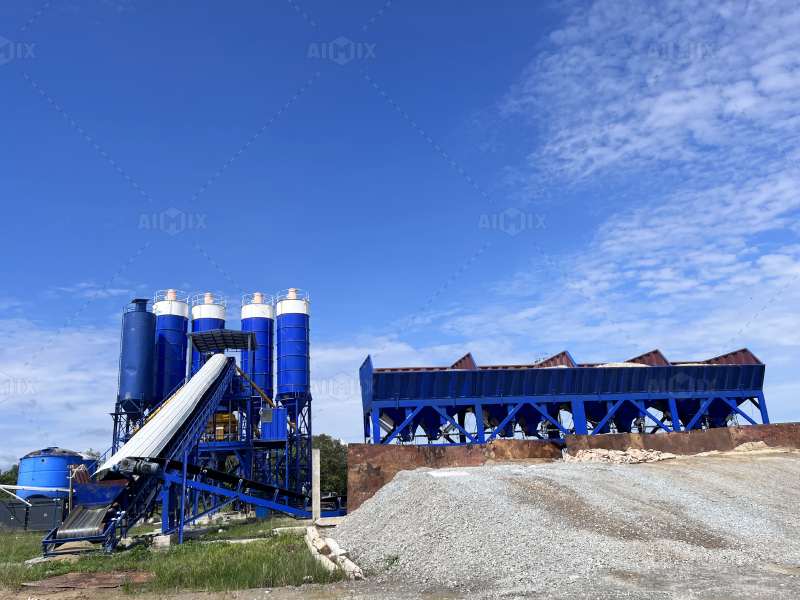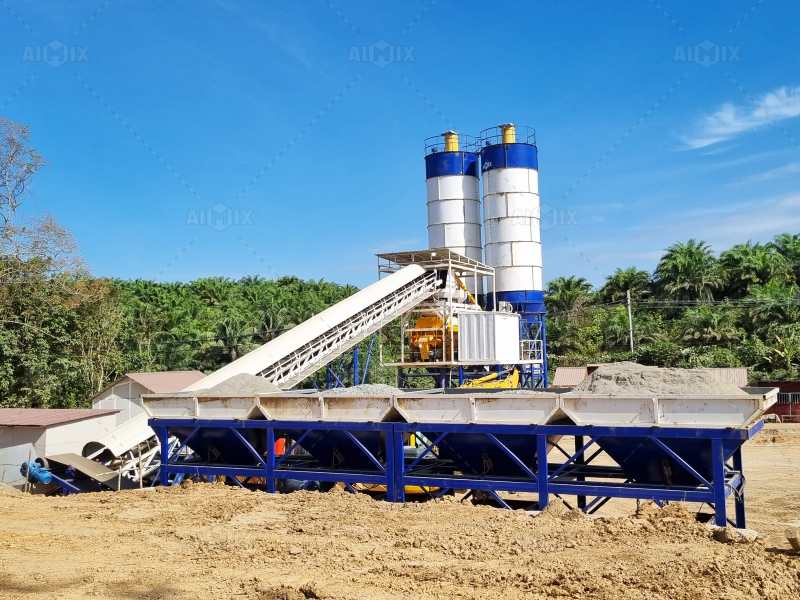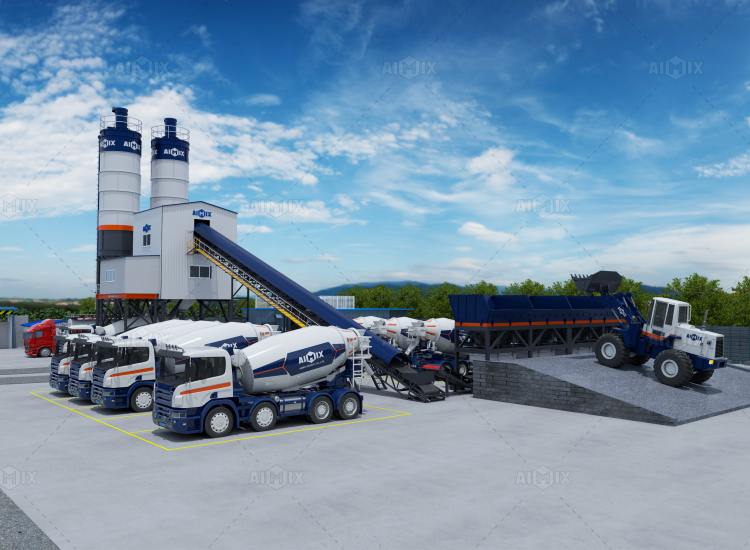As businesses in the construction industry expand, the need for flexible and efficient solutions becomes critical. Precast concrete plants offer one such solution, enabling businesses to scale up production, meet varied project demands, and maintain high-quality standards. Precast concrete—manufactured by casting concrete in a controlled environment and then transporting it to construction sites—has grown in popularity due to its versatility and benefits. From residential developments to large infrastructure projects, precast concrete provides opportunities for construction firms to enhance productivity, minimize costs, and ensure safety.
This article explores the flexibility that precast concrete plants offer to growing businesses and how they can be a game-changer in today’s competitive construction industry.

Scalability for Business Growth
One of the primary advantages of operating a precast concrete plant is its scalability. As businesses grow, so do their project needs, and precast plants are designed to expand accordingly. Whether you’re starting small or already managing large-scale operations, precast plants can be scaled to accommodate increased production capacity, larger product volumes, and more complex concrete elements.
With modular plant designs and adaptable production layouts, businesses can easily add additional molds, expand casting beds, or integrate new technologies as demand increases. This flexibility allows companies to invest in a concrete plant that meets their immediate needs while providing room for future expansion, making it easier to take on larger projects and meet higher customer demands as the business grows. If you are looking for a suitable concrete batch plant for your projects, either large concrete plant or small batching plant, you need to choose a quality one to ensure the working performance and concrete quality.
Versatility in Product Offerings
A precast concrete plant offers the ability to produce a wide range of concrete products, from structural components like beams, columns, and wall panels to decorative elements such as facades and architectural features. This versatility enables businesses to cater to diverse markets, including residential, commercial, and infrastructure projects.
For growing businesses, the ability to manufacture various products on demand provides a competitive edge. By offering customizable solutions to meet specific project requirements, companies can attract a broader customer base. In addition, precast concrete plants allow for the production of complex and specialized designs that might be challenging or impossible to achieve with traditional on-site concrete casting.
This product flexibility enables businesses to differentiate themselves and expand their service offerings, enhancing their ability to take on more varied and challenging projects.

Improved Project Efficiency and Timelines
Precast concrete is manufactured in a controlled environment, which significantly reduces production delays caused by external factors such as weather conditions. This control over the manufacturing process ensures consistent quality and allows businesses to maintain predictable project timelines.
For construction companies managing multiple projects simultaneously, a precast concrete plant provides the flexibility to streamline production schedules and minimize downtime. Concrete components can be manufactured ahead of time and stored until needed, allowing for faster assembly on the job site. This not only improves project efficiency but also reduces labor costs, as less on-site labor is required for concrete placement and curing.
The ability to meet tight project deadlines and provide just-in-time deliveries can help businesses take on more projects and improve their profitability, while also enhancing customer satisfaction.
Are you looking for a suitable batching plant for your project now? Do you want to get a cost-effective plant? If so, please just feel free to check Aimix machinery and choose a right one for your business to ensure the smooth progress of your projects.
Consistent Quality Control
In the competitive construction industry, maintaining high-quality standards is crucial to building a strong reputation and attracting repeat business. Precast concrete plants offer businesses the ability to implement strict quality control measures, ensuring that every batch of concrete meets the required specifications.
Since concrete is mixed and cast in a controlled environment, variables such as temperature, humidity, and mix ratios can be closely monitored. This level of control reduces the likelihood of defects, increases product consistency, and ensures that every component produced meets the necessary structural and aesthetic requirements.
For growing businesses, consistently delivering high-quality products can be a major selling point. It helps build customer trust, enhances the company’s brand reputation, and sets the business apart from competitors who may rely on traditional concrete casting methods with less control over quality.

Reduced Material Waste and Environmental Impact
Precast concrete plants contribute to sustainability efforts by reducing material waste and minimizing the environmental impact of construction projects. Because the concrete components are manufactured off-site and transported to the construction site, there is less waste generated during the casting process.
In a precast plant, materials are used more efficiently, and excess concrete can often be recycled into future batches. Additionally, the controlled environment minimizes the risk of over-pouring or mixing errors, further reducing waste. For businesses looking to implement greener practices and appeal to environmentally conscious clients, precast concrete production aligns with sustainable construction principles.
Moreover, some precast concrete plants offer the ability to integrate eco-friendly materials, such as low-carbon cement or recycled aggregates, into the production process. This not only enhances sustainability but also opens up new market opportunities for businesses catering to environmentally responsible projects.
Cost Savings and Higher Profit Margins
By investing in a precast concrete plant, businesses can achieve significant cost savings in both production and labor. Precast components are produced with greater precision, reducing the need for costly on-site modifications or repairs. Additionally, since the concrete is manufactured in a central location, transportation and logistical costs associated with delivering raw materials to multiple job sites are minimized.
The reduced labor requirements also contribute to lower overall project costs. Precast components can be quickly assembled on-site, reducing the need for large on-site crews and lowering labor expenses. These cost savings translate into higher profit margins for businesses, allowing them to remain competitive while expanding their operations. To get more detailed information about batching concrete plants prices, you can just click here to check this page now https://aimixgroup.com/concrete-batching-plant/price-list/.
Enhanced Job Site Safety
Safety is a critical concern in the construction industry, and precast concrete plants offer a safer alternative to traditional concrete casting methods. Since much of the work is done off-site, the risks associated with on-site concrete mixing and pouring—such as accidents involving heavy machinery, slips, and falls—are minimized.
By producing concrete components in a controlled environment, businesses can also reduce worker exposure to hazardous conditions such as extreme weather, dust, and noise. This not only improves safety outcomes but also reduces liability risks for construction firms, creating a safer and more efficient job site environment.
Conclusion
For growing businesses in the construction industry, precast concrete plants offer a flexible and scalable solution that enhances efficiency, improves project timelines, and ensures consistent quality. With their ability to produce a wide range of concrete products, reduce material waste, and promote safety on the job site, precast concrete plants enable companies to meet evolving project demands and expand their operations while maintaining high standards of performance.
As construction businesses look for ways to stay competitive and meet the challenges of modern projects, investing in a precast concrete plant provides the flexibility needed to grow and succeed in a dynamic industry.